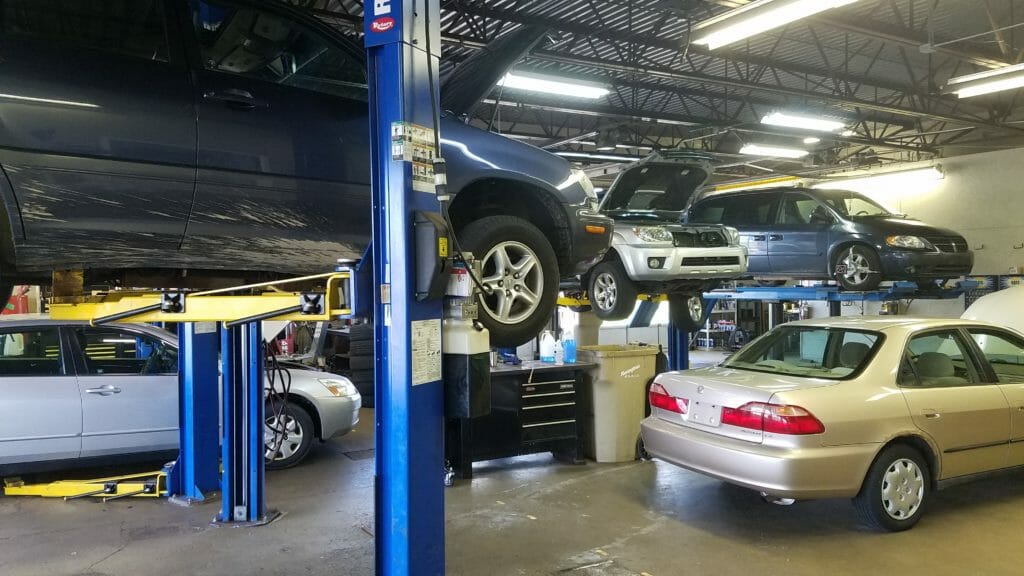The Need for Lift Inspections

In our last blog we discussed the need for lift safety training in all auto repair shops. It’s vitally important that all employees are familiar with automotive lifts, know how to use them correctly, and know how to safely work around them. It’s also critical for shop safety that the lifts work correctly and are in good operating condition at all times. For this to happen, every shop needs annual lift inspections.
Why should auto repair shops make it a priority to have annual lift inspections? Well, first, it’s important to look after the safety of employees. It’s also advisable to protect property, both the shop’s property and the customer’s vehicle. If a lift fails, the damage to both could be considerable. An additional reason is that no one wants a penalty from OSHA. Finally, an annual inspection is legally required in the majority of states in the U.S.
OSHA and Lift Inspections
As we mentioned before, OSHA does not have a specific standard that applies to automotive lifts. However, as specified in the OSHA general duty clause, the shop is obligated to provide a safe work environment. Section 5(a)(1)of the Occupational Safety and Health Act requires that each employer furnish to each of its employees a workplace that is free from recognized hazards that are causing or likely to cause death or serious physical harm.
For OSHA to prove a general duty clause violation, it must show that:
1) The employer fails to keep the workplace free of a hazard to which its employees were exposed.
2) The hazard was recognized.
3) The hazard was causing, or was likely to cause, death or serious physical harm.
4) There was a feasible and useful method to correct the hazard.
OSHA can and will apply nationally recognized standards such as ANSI/ALI ALIOM and suggest that these requirements be followed to abate cited infractions.
What Does an Annual Inspection Entail?
Annual lift inspections check to see if automotive lifts were correctly installed, if they are functioning properly, and if the shop has done the right maintenance. If an inspection finds flaws in any of these areas, the shop can fix them before they become a serious problem or a danger.
The Automotive Lift Institute has guidelines for lift inspections. Here are their recommendations:
For lifts with two posts and in-ground lift telescoping arms:
- Check over-travel stops for wear.
- Examine arms for stress cracks, weld breaks or permanent bending.
- Check swivel points and lubricate if needed.
For lifts with two-post and four-post lift chains and cables:
- Check chains and/or cables for stretch or wear; have the system serviced if excessive slack or wear is present.
- Inspect end connections for corrosion and deformation.
- Remove any salt, sand, water, dirt or debris from chain system.
For hydraulic systems:
- Maintain hydraulic fluid level per lift manufacturer’s requirements.
- Make sure the return lines to the reservoir are tightly connected.
- Check seals, packing and wipers for blow-by or oil leaks.
- Inspect plungers for nicks, dings and dents.
Lift inspectors follow a standardized procedure and a checklist. They assess both the lift and bay and can offer insights about improving safety in that area. They will produce a report containing repair recommendations and label the lift as inspected so all concerned – the shop’s management, the techs, and OSHA – know that it has been inspected and when.
It’s still up to the shop to train its own employees and carry out all maintenance on schedule as well as document the repair logs, but an annual inspection means that an objective, trained outsider has carefully examined the lift and determined what condition it is in. Having this done by an inspector at least once a year holds the shop and the techs accountable, encourages repairs to be done in a more timely manner, and contributes to overall shop safety.
Does your auto shop have annual lift inspections? What is your experience with the inspection process? We would love to hear from you, so leave a comment either here or in our forums.


Responses